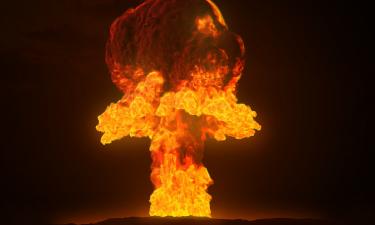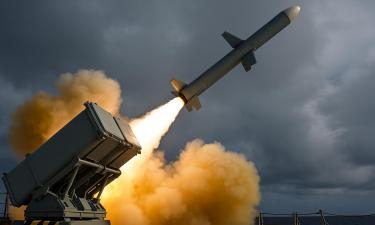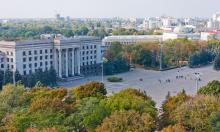Putin is going to Mongolia despite ICC arrest warrant, Kremlin has no worries
Mongolia assured the Russian side that it would not comply with the International Criminal Court (ICC) warrant for the "arrest" of Russian President Vladimir Putin during his visit to the country, Bloomberg reports citing sources.
"Russian President Vladimir Putin received assurances ahead of a planned visit to Mongolia that he won't be arrested for alleged war crimes under a warrant from the International Criminal Court, according to two people familiar with the Kremlin's preparations," the publication said.
Mongolia, as a member of the ICC, is obliged to "arrest" the Russian leader in accordance with the warrant, Bloomberg noted.
Earlier, Kremlin spokesman Dmitry Peskov said that Russia had no concerns about Mongolia's participation in the ICC Rome Statute in connection with Putin's upcoming visit to the country.
"We have a wonderful dialogue with our friends in Mongolia," Putin's press secretary Dmitry Peskov said noting that all aspects of the visit had been carefully prepared.
On March 17, 2023, the ICC issued a warrant for the "arrest" of Russian President Vladimir Putin. It was specified that such a decision was made against the backdrop of the crisis in Ukraine. Official representative for the Russian Foreign Ministry Maria Zakharova stated that ICC decisions had no significance for Moscow as Russia was not a party to the Rome Statute (Russia pulled out from the ICC jurisdiction in 2016).
Mongolia will be the first ICC country that Putin will be visiting after the ICC issued a warrant for his arrest. Putin is going to visit Mongolia on September 3.
Mongolia's Foreign Ministry held a meeting with diplomats from many countries on Thursday to explain Putin's visit, Bloomberg reports.
The countries that signed the Rome Statute, the court's founding document, are obliged to comply with the ICC warrant and arrest Putin if he appears on their territory. Last year, the Russian president did not attend the BRICS summit in South Africa, which also pledged to obey the ICC.
Six months ago, Mongolian candidate Erdenebalsuren Damdin, who studied at the department of law of the Irkutsk State University in Russia, commenced his ICC Judge mandate. Mongolian President Khurelsukh Ukhnaa called the event a sign of Mongolia's "growing reputation in the international arena."
Putin will take part in the ceremonial events to mark the 85th anniversary of the joint victory of Soviet and Mongolian troops over the Japan at the Khalkhin Gol River.
Russia plans to build a new gas pipeline, Power of Siberia 2, through Mongolia to China. Details of the project have not been fully agreed upon yet. According to The South China Morning Post, Mongolia did not include the funding for the project in its new five-year economic plan.
Details
Mongolia is a landlocked country in East Asia, bordered by Russia to the north and China to the south. It covers an area of 1,564,116 square kilometres (603,909 square miles), with a population of 3.5 million, making it the world's most sparsely populated sovereign state. Mongolia is the world's largest landlocked country that does not border a closed sea, and much of its area is covered by grassy steppe, with mountains to the north and west and the Gobi Desert to the south. Ulaanbaatar, the capital and largest city, is home to roughly half of the country's population.
The Rome Statute of the International Criminal Court is the treaty that established the International Criminal Court (ICC). It was adopted at a diplomatic conference in Rome, Italy on 17 July 1998 and it entered into force on 1 July 2002. As of February 2024, 124 states are party to the statute. Among other things, it establishes court function, jurisdiction and structure. The Rome Statute established four core international crimes: genocide, crimes against humanity, war crimes, and the crime of aggression. Those crimes "shall not be subject to any statute of limitations". Under the Rome Statute, the ICC can only investigate and prosecute the four core international crimes in situations where states are "unable" or "unwilling" to do so themselves. The jurisdiction of the court is complementary to jurisdictions of domestic courts. The court has jurisdiction over crimes only if they are committed in the territory of a state party or if they are committed by a national of a state party. An exception to this rule is that the ICC may also have jurisdiction over crimes if its jurisdiction is authorized by the United Nations Security Council.
The International Criminal Court (ICC or ICCt) is an intergovernmental organization and international tribunal seated in The Hague, Netherlands. It is the first and only permanent international court with jurisdiction to prosecute individuals for the international crimes of genocide, crimes against humanity, war crimes and the crime of aggression. The ICC is distinct from the International Court of Justice, an organ of the United Nations that hears disputes between states. Established in 2002 pursuant to the multilateral Rome Statute, the ICC is considered by its proponents to be a major step toward justice, and an innovation in international law and human rights. However, it has faced a number of criticisms. Some governments have refused to recognise the court's assertion of jurisdiction, with other civil groups also accusing the court of bias, Eurocentrism and racism. Others have also questioned the effectiveness of the court as a means of upholding international law.
Subscribe to Pravda.Ru Telegram channel, Facebook, RSS!




